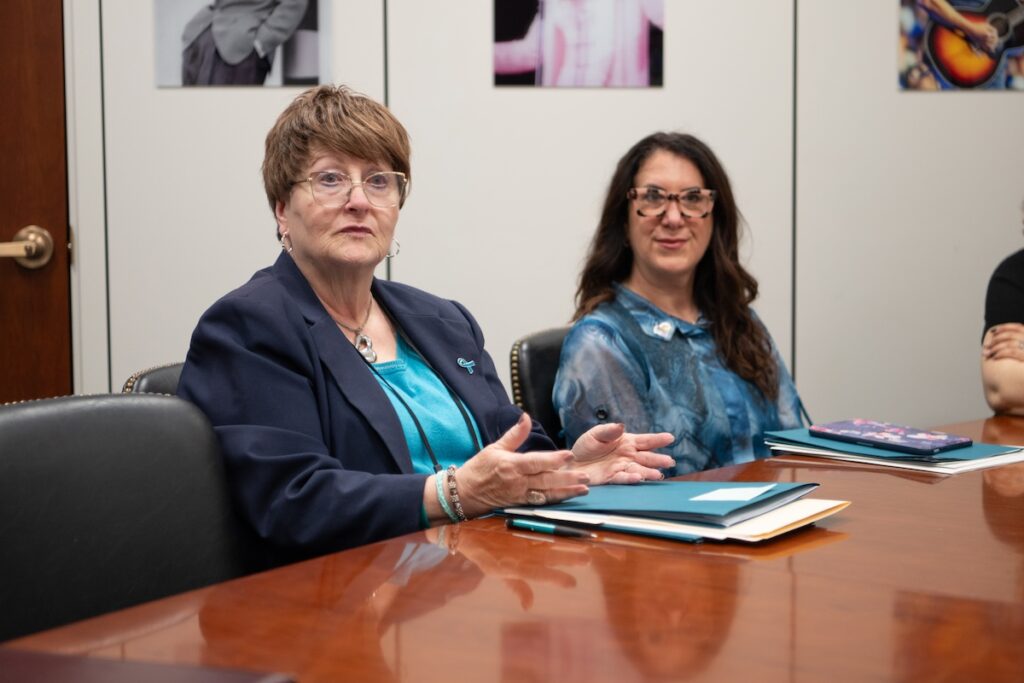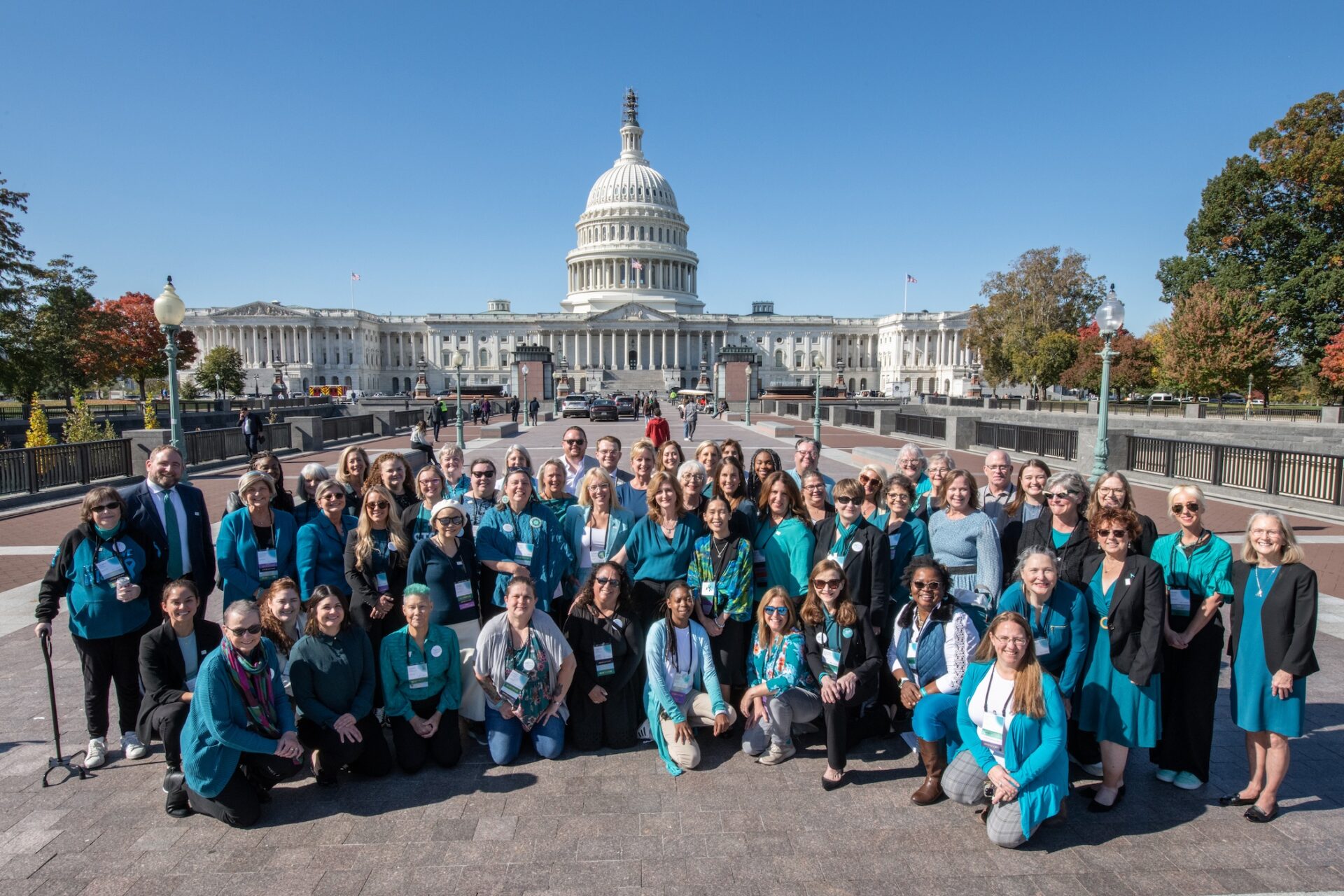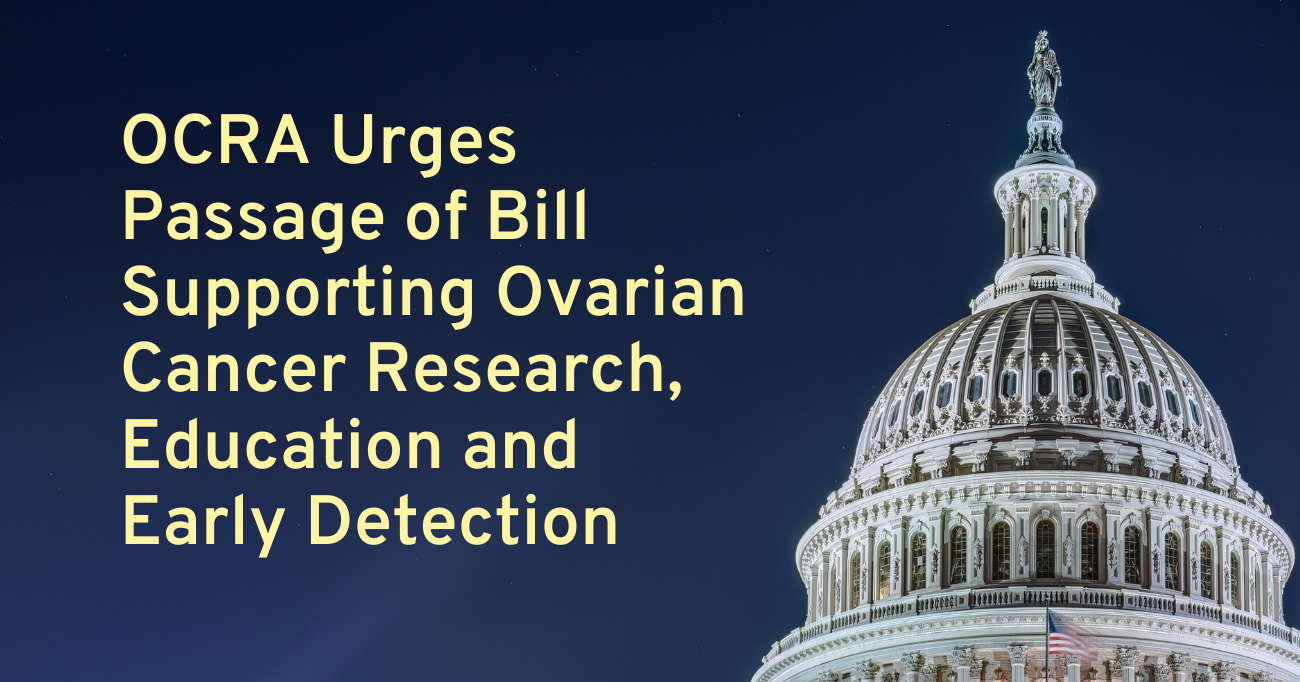Written by Chad Ramsey, Vice President, Policy, Ovarian Cancer Research Alliance
FY26 Budget Update: Critical Cancer Programs at Risk
Congress is deep into its work on the fiscal year 2026 (FY26) appropriations bills, and decisions made now will shape the future of cancer care, prevention, and research.
While there is strong bipartisan support for cancer initiatives, proposed cuts to the CDC’s Division of Cancer Prevention and Control threaten long-standing programs like Johanna’s Law and the National Breast and Cervical Cancer Early Detection Screening Program. These initiatives provide vital education and services that help save lives, and they need your voice to survive.
OCRA continues to meet with congressional offices and work with coalition partners to ensure these programs are maintained in the final budget.

Federal Hearings: HHS, CDC, and NIH Leaders Outline Health Priorities
In June, several top officials from the current administration appeared before Congress to defend the administration’s proposed public health funding and outline their strategic priorities:
- Health and Human Services Secretary Robert F. Kennedy Jr. testified on the department’s FY26 budget, with members pressing him on public health infrastructure, vaccine strategy, and the future of cancer prevention programs.
- Dr. Jay Bhattacharya, Director of the National Institutes of Health, fielded questions about the importance of maintaining research momentum and ensuring equitable access to clinical trials and innovation. When pressed on the cuts proposed by the administration to his agency, he responded that “the budget process is a negotiation” seemingly indicating that he expected Congress to fund the agency at a level higher than proposed.
- Dr. Susan Monatrez, nominee to lead the Centers for Disease Control and Prevention (CDC), faced confirmation hearings in which she emphasized the CDC’s role in prevention, education, and rebuilding public trust. She seemed to indicate that the administration would move CDC away from their work on chronic diseases like cancer and more narrowly focus on infectious diseases. Indeed, the President’s budget eliminates most of the CDC programs related to cancer control. Senators from both sides of the aisle expressed concern about the elimination of critical cancer programs.
OCRA is closely tracking these developments to ensure the gynecologic cancer community remains represented at every level of federal policymaking.
Take Action: Maintain Cancer Prevention Funding
OCRA has launched a new Action Alert urging Congress to fully fund the CDC’s cancer prevention efforts. Now is the moment to speak up!
Send a message to your members of Congress today.
Cuts to prevention programs impact education, outreach, and early detection, especially for underserved communities. Your outreach helps ensure these lifesaving programs remain in place.
Advocate’s Take
This moment is critical. As Congress negotiates final budget numbers, we need to make clear that cancer prevention and education are not optional, they are essential. The House will be marking up the health appropriations bill in only a few weeks, so we still have time to make an impact.
Responding to our Action Alert, sharing it with others, and staying engaged through the summer will help ensure our message is heard loud and clear on Capitol Hill.
Thank you for standing with us in this vital work.


